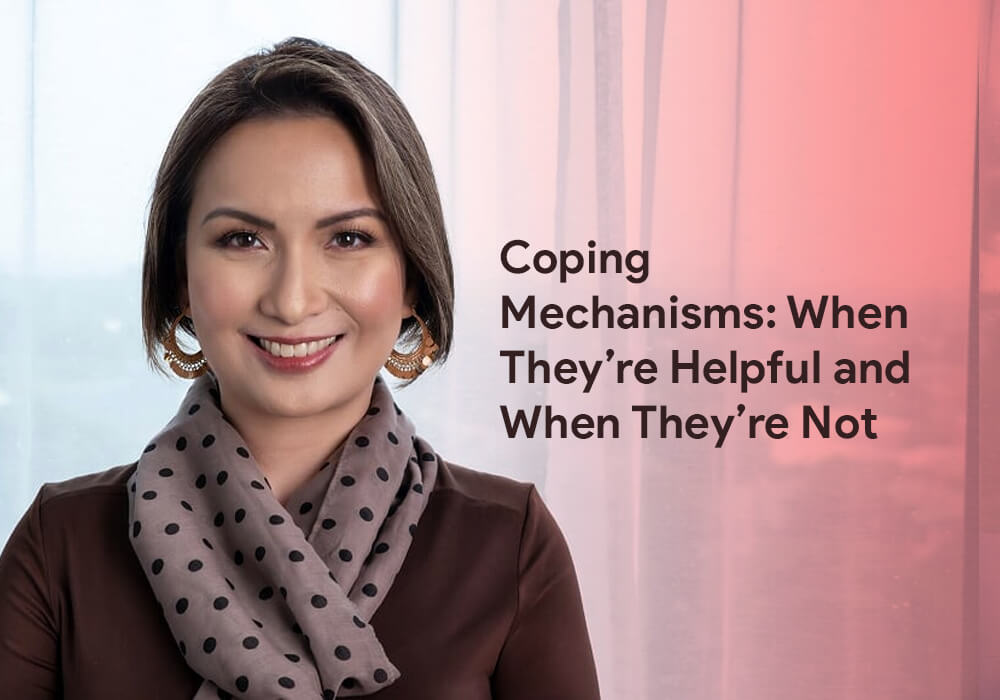No matter how great your life is right now, you will eventually deal with disappointments in the future. Failures, setbacks, and even trauma and loss — all of these are unfortunate facts of life.
Everyone, however, must face difficult situations.
We must come up with effective ways to deal with these circumstances and get back up on our feet.
This is why coping is an important part of human behavior. Our coping mechanisms enable us to successfully navigate through the difficult aspects of life. But how well do we really know these mechanisms? And are they always good for us?
Everyone’s Got a Coping Mechanism
Coping mechanisms are skills that allow a person to make sense of a difficult situation and integrate these into a sustainable perspective of the world. People who cope do certain activities to “cover” the pain or make up for their loss.
When the going gets tough, the tough cope with it mentally or physically so they can get through another day. Without effective coping mechanisms, a person might end up doubting themselves or thinking that their failures are results of their inadequacy.
Coping allows us to recover from tough situations. For example, a mother who lost her child ends up volunteering at a local orphanage to care for abandoned children. She copes for her loss by pouring all of her energy on children.
Coping mechanisms can be good because they help us power through these difficult ordeal. We’re talking about the positive mechanisms here. But there are some forms of coping that are unhealthy or cause harm to others.
When Coping Mechanisms Become Bad for You
The family is our primary source of physical, emotional, mental, and spiritual needs. If our parents and/or siblings fail to meet these needs, we develop addictive or compulsive behaviors. These behaviors, left unchecked, will turn into coping mechanisms.
Coping mechanisms vary from one person to another. Popular examples are relationships, alcohol, drugs, sex, pornography, and gambling.
One of the most notorious mechanisms, sadly, is substance abuse. People escape their realities or fill the lacks in their childhood by taking drugs. It’s the easiest way to prompt the body to feed the brain with feel-good neurotransmitters to create a strong but temporary feeling of security and peace.
“What’s wrong with trying to be happy?” some people might ask. I don’t believe these mechanisms make as happy per se; rather, they help us forget. They offer short-term resolutions that alleviate our stress only for a short while. But once these coping mechanisms get out of hand, they can cause pain to us and our loved ones.
These coping mechanisms provide short-term resolution but using them to cope with stress or numb ongoing pain may harm you in the future.
In my case, my affairs, business ventures, and obsession with material possessions got me into a number of more stressful situations. I thought I was happy at first but in reality, I was spiraling into dark and miserable hole. I started getting sick. I couldn’t connect with my spouse or my kids. I ended up in a ton of debt.
Things were pretty bad.
Still, I found myself repeating the same harmful cycle of coping. I would commit to change but I’d end up shopping, engaging in an affair, and return to my dangerous coping mechanisms.
By God’s grace, I eventually got out. But it wasn’t easy.
I had to let go of a lot of things I thought I couldn’t live without. I ended my affair and had to say no to tempting yet illegal business ventures. I refused temporary material things even though I craved for them.
I couldn’t do it alone so I sought God’s help and He was incredibly faithful. It took some time but I managed to get out. And you can do the same thing, too. With enough willpower combined with God’s help, you can be free from harmful coping mechanisms.
Discover a Better You
Don’t settle with who you are now. You can always improve yourself and we’re here to help. Our Extraordinary Confidence course is a 21-day program designed to help you achieve a better version of yourself. Each 30-minute course tackles serious issues that keep you from becoming better, such as coping mechanisms.
We’d love to have you at our boot camp! Join us today.



